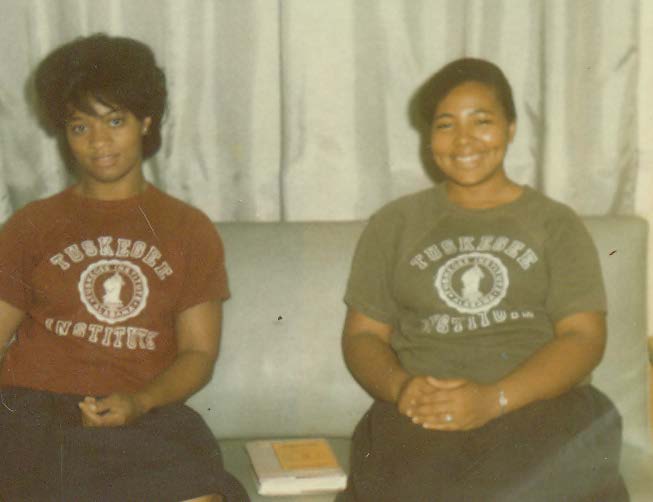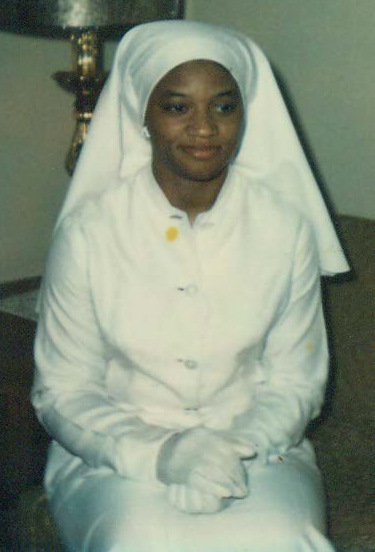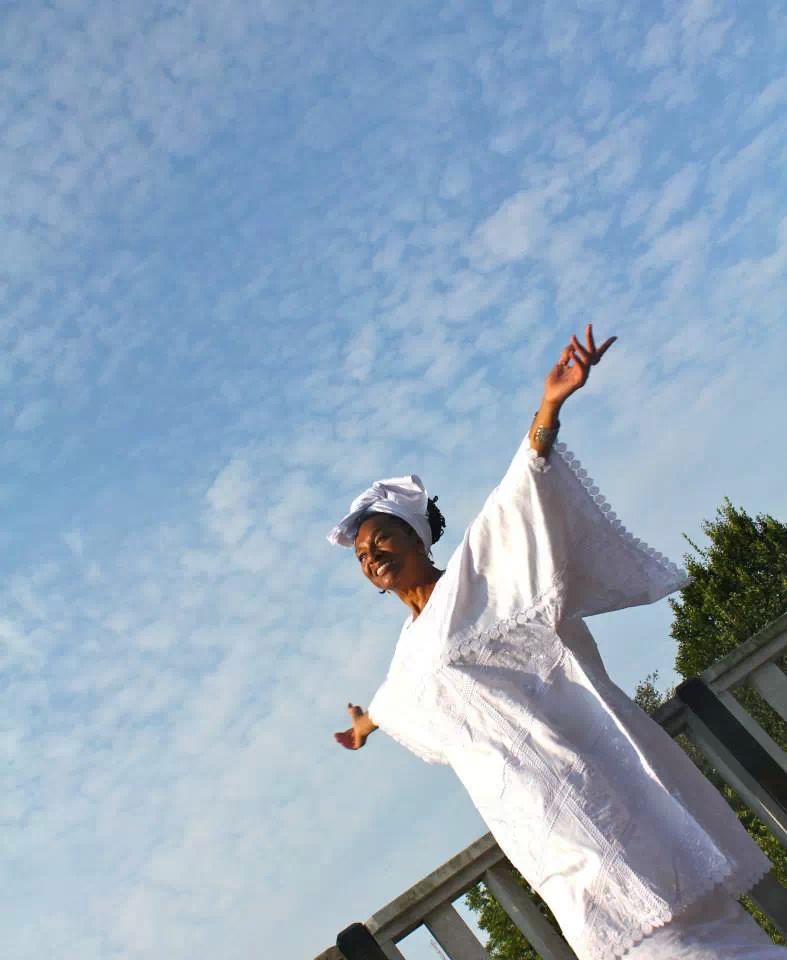This school year I've decided to use the Charlotte Mason homeschooling approach for my sons, ages 4 and 6. Features of Charlotte Mason that influenced my choice included:
1. Listening to or reading "living" books, characterized by their outstanding literary quality; readings followed by student's narration.
2. Short lessons, 5 to 15 minutes per subject, for children my age.
3. Good character and habit formation.
4. Emphasis on nature and spending large parts of the day outside.
5. A liberal arts curriculum including music, picture study, handicraft, foreign language, and scripture study.
I decided on Ambleside Online, a CM curriculum, because it has been thoughtfully created by a group of homeschooling parents, and it is free.
A challenge, however, is that the history readings, at least for Year 1, are Eurocentric. Hence, I'm on the quest to incorporate readings on African and African American history and culture. (In particular, I am looking to substitute a book on the history of Britain with one on the history of Nubia.)
I want living books as described here in Charlotte Mason's words as, "fit and beautiful expression of inspiring ideas and pictures of life." The authors of living books are both knowledgeable and passionate about their subject. They display "imagination, originality, and the 'human touch.'"
The pursuit hasn't been easy, none usually are in the beginning, but I was quite delighted this past Friday morning when we opened two books that complemented each other wonderfully and inspired the soul and intellect.
The first, Ashanti to Zulu: African Traditions, was recommended to me by amazon.com once it noticed my search on children's book/African history. Awarded the Caldecott Medal in 1974, this book has been described as a "stunning ABC of African culture." My children were immediately captivated by its beautiful illustrations, and the prose is a delight.
For each alphabet there is a vignette that colorfully tells of a custom of one of twenty-six African peoples. Each ethnic group is marked on a map of the continent in the back of the book, which helps me to achieve my goal to specify the people or country when referring to an aspect of this vast continent. Hence, Ashanti instead of African in the title of this post.
The second book, Langston's Train Ride, is the one that truly inspired me to finally write a post on the pursuit to incorporate "living" reads recounting African and African American history. I randomly picked the book off the shelf at my local library a month ago and just happened to read it for the first time after reading from Ashanti to Zulu.
It was beyond perfect, and that has much to do with the fact that my children have memorized, or partially memorized, three of Langston Hughes poems. The first was the "Negro Speaks of Rivers," which I began reciting to my eldest when he was just a baby.
The author of the book, Robert Burleigh, notes, "I love the poetry of Langston Hughes. In Langston's Train Ride, I wanted to capture just one thing: the moment when Langston Hughes came to believe in himself as a writer." The book recounts his train ride from Ohio to Mexico in which he wrote "The Negro Speaks of Rivers," just out of high school.
Burleigh writes with rhythm and soul, channeling the spirits of our people. I loved that the book captures the process by which a young African American man, whose words my sons recite, was inspired to write poetry. Too, I loved that the vivid pictures and words reinforce our geography lessons, as the book traces Langston's train ride west and south, painting the varied landscapes of our country.
But most I loved its imagining Langston's thoughts as he crossed the Mississippi River:
"I think of what this river means to my people. Slaves worked here on boats, in nearby fields, and alongside the banks, stacking sandbags to hold down floods. . . Whoosh. Words and phrases come rushing into my head. The names of other ancient rivers bubble up. African rivers. The Congo. The Nile. The Euphrates."
Of course the Nile and the Congo were highlighted on the map in Ashanti to Zulu, which we revisited.
Langston, the author tells us, looked at his reflection in the train window as he recited his new poem again and again. "Questions keep coming into my head: Am I really a poet? Is it possible? Can I sing my America, too, as other great poets have sung theirs? Can I?"
These lines, of course, alluded to Langston Hughes' poem "I, Too, Sing America," giving the boys and I license to recite.
Langston's Train Ride is truly a living book as it brought Hughes and his poetry to life for us one Friday morning.
#CharlotteMason #AfricanAmericanCharlotteMason #AfricanAmericanHomeschooling #ChildrensBooksAfrica
1. Listening to or reading "living" books, characterized by their outstanding literary quality; readings followed by student's narration.
2. Short lessons, 5 to 15 minutes per subject, for children my age.
3. Good character and habit formation.
4. Emphasis on nature and spending large parts of the day outside.
5. A liberal arts curriculum including music, picture study, handicraft, foreign language, and scripture study.
I decided on Ambleside Online, a CM curriculum, because it has been thoughtfully created by a group of homeschooling parents, and it is free.
A challenge, however, is that the history readings, at least for Year 1, are Eurocentric. Hence, I'm on the quest to incorporate readings on African and African American history and culture. (In particular, I am looking to substitute a book on the history of Britain with one on the history of Nubia.)
I want living books as described here in Charlotte Mason's words as, "fit and beautiful expression of inspiring ideas and pictures of life." The authors of living books are both knowledgeable and passionate about their subject. They display "imagination, originality, and the 'human touch.'"
The pursuit hasn't been easy, none usually are in the beginning, but I was quite delighted this past Friday morning when we opened two books that complemented each other wonderfully and inspired the soul and intellect.
The first, Ashanti to Zulu: African Traditions, was recommended to me by amazon.com once it noticed my search on children's book/African history. Awarded the Caldecott Medal in 1974, this book has been described as a "stunning ABC of African culture." My children were immediately captivated by its beautiful illustrations, and the prose is a delight.
For each alphabet there is a vignette that colorfully tells of a custom of one of twenty-six African peoples. Each ethnic group is marked on a map of the continent in the back of the book, which helps me to achieve my goal to specify the people or country when referring to an aspect of this vast continent. Hence, Ashanti instead of African in the title of this post.
The second book, Langston's Train Ride, is the one that truly inspired me to finally write a post on the pursuit to incorporate "living" reads recounting African and African American history. I randomly picked the book off the shelf at my local library a month ago and just happened to read it for the first time after reading from Ashanti to Zulu.
It was beyond perfect, and that has much to do with the fact that my children have memorized, or partially memorized, three of Langston Hughes poems. The first was the "Negro Speaks of Rivers," which I began reciting to my eldest when he was just a baby.
The author of the book, Robert Burleigh, notes, "I love the poetry of Langston Hughes. In Langston's Train Ride, I wanted to capture just one thing: the moment when Langston Hughes came to believe in himself as a writer." The book recounts his train ride from Ohio to Mexico in which he wrote "The Negro Speaks of Rivers," just out of high school.
Burleigh writes with rhythm and soul, channeling the spirits of our people. I loved that the book captures the process by which a young African American man, whose words my sons recite, was inspired to write poetry. Too, I loved that the vivid pictures and words reinforce our geography lessons, as the book traces Langston's train ride west and south, painting the varied landscapes of our country.
But most I loved its imagining Langston's thoughts as he crossed the Mississippi River:
"I think of what this river means to my people. Slaves worked here on boats, in nearby fields, and alongside the banks, stacking sandbags to hold down floods. . . Whoosh. Words and phrases come rushing into my head. The names of other ancient rivers bubble up. African rivers. The Congo. The Nile. The Euphrates."
Of course the Nile and the Congo were highlighted on the map in Ashanti to Zulu, which we revisited.
Langston, the author tells us, looked at his reflection in the train window as he recited his new poem again and again. "Questions keep coming into my head: Am I really a poet? Is it possible? Can I sing my America, too, as other great poets have sung theirs? Can I?"
These lines, of course, alluded to Langston Hughes' poem "I, Too, Sing America," giving the boys and I license to recite.
Langston's Train Ride is truly a living book as it brought Hughes and his poetry to life for us one Friday morning.
#CharlotteMason #AfricanAmericanCharlotteMason #AfricanAmericanHomeschooling #ChildrensBooksAfrica












